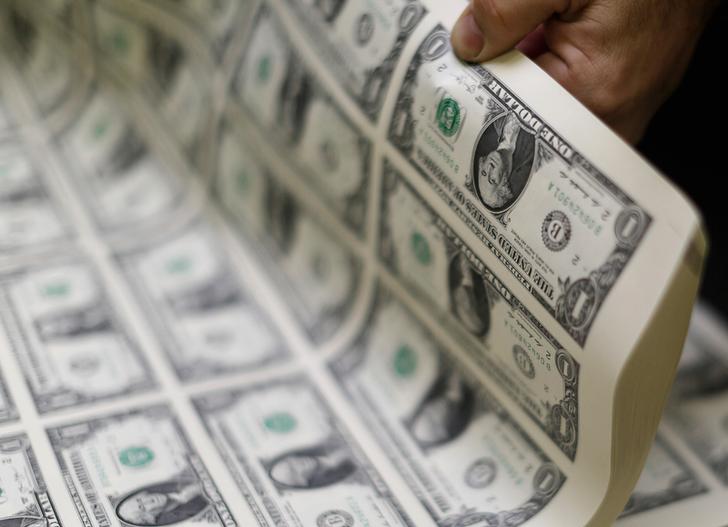Egyptian pound could drop to 8.25 to the dollar by yearend - analysts

By Hend Kortam
CAIRO, Oct 18 (Aswat Masriya) - The Egyptian pound is projected to change hands at between 8.20 and 8.25 to the dollar by the end of 2015, analysts told Aswat Masriya, signaling that the pound is depreciating faster than had been expected.
The pound was depreciated by Egypt's central bank in an official auction on Sunday, sliding from 7.83 to 7.93 pounds to the dollar after the bank depreciated it by 10 piasters, in the second such move in less than a week.
This takes the currency's decline to the year to 11 percent, having started the year at an official price of 7.14 to the dollar.
The central bank's move comes "faster than expected ... it is clear that there a lot of pressures on it," said Hany Genena, the head of research at Pharos Securities Brokerage.
Genena believes depreciating the pound is a "positive" move to mobilise the economy which has been "paralysed over the past two months."
This is the fourth time Egypt's central bank depreciates the pound.
Investment banks had projected that it would be changing hands at 8 pounds to the dollar by yearend but after today's depreciation, the dollar has already started trading at over 8 pounds in commercial banks and has climbed up to 8.40 on the black market.
However, Hany Farahat, senior economist at CI Capital investment bank said the pace at which the central bank has been moving since Thursday is "expected", adding that he expects this to continue through the week until the pound changes hands at 8.20 to the dollar, "approaching its real value."
He also expects the pound to trade at 8.60 against the dollar at the beginning of the next fiscal year in July 2016/2017.
Another analyst who requested to remain anonymous believed the pound will be worth 8.25 against the dollar by the end of 2015.
The Financial Times said last week that the pound is the "most overvalued currency with a current account deficit in emerging markets."
Years of political turmoil have left the Egyptian economy struggling. Foreign exchange reserves have fallen by more than half since a popular uprising in January 25 which ended the rule of president Hosni Mubarak and the instability that ensued has taken a toll on tourism, which was previously one of the main sources of income for Egypt.
At the end of September, foreign reserves tumbled to $16.335 billion, after dropping by around $2 billion.
Omar El-Shenety, an executive of Multiples, an investment banking group operating in Dubai and Cairo, said that amid a decline in grants and aid from Gulf countries, the current budget deficit and the inability of foreign investment and tourism to fill this deficit, the depreciation of the pound is "inevitable to protect foreign reserves."
He echoed statements by Investment Minister Ashraf Salman last month, when he said "the depreciation of the Egyptian pound is no longer a matter of choice under the current local and international economic circumstances."
The central bank has been under a lot of pressure recently, Shenety said. He believes that the market was ready for the depreciation.
Shenety said he expects the central bank to continue with this policy, depreciating the pound by five to seven percent annually for the next four to five years, adding that the percentage may reach up to 10 precent if the pressure increases.
"Our experience with the central bank is that it prefers to depreciate the pound gradually so that inflation does not rise suddenly," Shenety said.
An analysis by investment bank Renaissance Capital cited by the Financial Times projected faster depreciation rates, forcasting a depreciation of 20 percent in the next two years.
On January 18, Egypt allowed the pound to weaken in front of the U.S. dollar for the first time in six months.
In July, the bank depreciated the Egyptian pound twice, allowing it to dip by 10 piasters each time, falling from 7.53 to its price until last week, 7.73 against the dollar.
Egypt said the step was taken to eliminate the unofficial currency market, known as the black market. In a second blow to the parallel market, the central bank capped on February 5 the amount of dollars that can be deposited in banks but the black market has resurfaced.
(Additional reporting by Abd Elkader Ramadan)









facebook comments